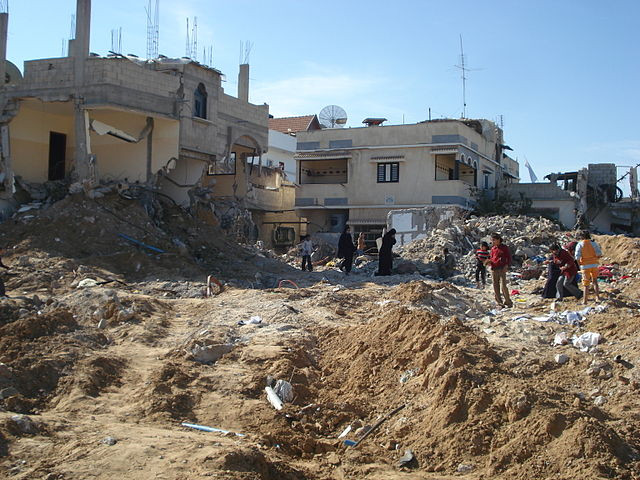In the shadow of escalating tensions in the Gaza Strip, the Palestinian civilians find themselves trapped in a dire humanitarian crisis. As Israel intensifies its military operations in response to a Hamas militant attack on October 7, which resulted in the death of 1,300 Israelis, mostly civilians, the residents of Gaza are grappling with severe shortages of essential supplies.
Water scarcity has become a pressing concern. U.N. shelters across Gaza have reported a complete depletion of water reserves. Thousands have sought refuge in the courtyard of Gaza's largest hospital, fearing an imminent Israeli ground offensive. However, the medical staff, already overwhelmed by the influx of wounded patients, are apprehensive about the impending fuel shortage that could halt the operation of life-saving generators.
The situation has been exacerbated by Israel's decision to cut off the flow of food, medicine, water, and electricity to Gaza. Airstrikes have decimated neighborhoods, and an estimated one million residents in the north have been advised to migrate south in anticipation of Israel's planned attack. Since the onset of the conflict, over 2,300 Palestinians have lost their lives.
BREAKING: AID VEHICLES WITH ESSENTIAL SUPPLIES REFUSED ENTRY INTO GAZA BY ISRAEL
NO FOOD
NO ELECTRICITY
NO WATER#Gazagenocide pic.twitter.com/tppkfhNwaR — Sulaiman Ahmed (@ShaykhSulaiman) October 14, 2023
In a recent development, U.S. national security adviser Jake Sullivan revealed that Israeli officials had resumed water supply in southern Gaza. However, this claim was met with skepticism by aid workers and Gaza government spokespersons who found no evidence of the water's return. The scarcity of resources has led to panic among the residents. Long queues outside bakeries and a palpable fear of food shortages paint a grim picture. In Khan Younis, locals have turned to mosques that still have a supply of clean water. The widespread electricity outages have rendered water pumps inoperative, leaving many households without a replenishing water supply. International relief organizations have urged the establishment of an emergency corridor for the transfer of humanitarian aid. However, no such corridor seems to be in the offing. The World Health Organization has medical supplies ready at the Rafah border in Egypt but awaits permission from either Egypt or Israel for their delivery.
Families in Gaza cannot access food, water & essential supplies.@WFP has provided 137,000 people in @UNRWA shelters with ready-to-eat food & fresh bread, but need safe & unobstructed humanitarian access to reach more people in need. pic.twitter.com/YKDsAa0bNf — United Nations (@UN) October 11, 2023
The medical fraternity in Gaza is particularly concerned about the potential shutdown of hospital facilities. The imminent fuel crisis threatens to disrupt the operation of generators, putting at risk the lives of thousands of patients dependent on life-support systems. The U.N. estimates that the fuel shortage could become critical by Monday.
Shifa Hospital in Gaza City, located in the heart of the evacuation zone, has become a refuge for over 35,000 civilians hoping to find safety within its premises. However, the hospital continues to receive hundreds of wounded individuals daily. The conflict has also taken a toll on the medical staff. Several doctors and medics have lost their lives in the ongoing violence.
The U.N.'s Palestinian refugee agency, UNRWA, has reported that approximately half a million Gaza residents are currently taking shelter in U.N. facilities across the territory. The water crisis in these shelters is acute, with many facilities running dry.
The broader geopolitical implications of the conflict are evident. The U.S. State Department announced that Secretary of State Antony Blinken would revisit Israel, following his tour of six Arab nations. The objective is to prevent the Gaza conflict from triggering a more extensive regional confrontation.
The Gaza Strip stands at a critical juncture. The international community's intervention is imperative to alleviate the humanitarian crisis and pave the way for a sustainable resolution.





